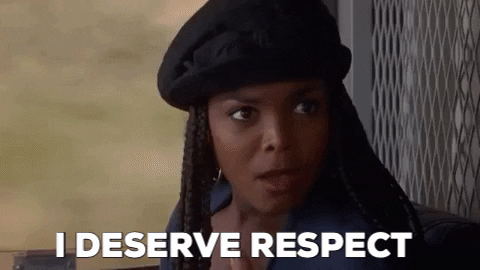
This logo isn't an ad or affiliate link. It's an organization that shares in our mission, and empowered the authors to share their insights in Byte form.
Rumie vets Bytes for compliance with our
Standards.
The organization is responsible for the completeness and reliability of the content.
Learn more
about how Rumie works with partners.
A job interview is like a first date.
You and your potential employer are getting to know each other for the first time.
They want to find out if you're the right fit for the job, and you want to see if the role and workplace meet your expectations.
Of course, you can use this opportunity to figure out the pros of the job, but what about the cons? You'll need to keep an eye out for red flags that might turn you off.
Do They Get Bad Reviews?
Before the interview, research the company to learn about how they treat their employees.
Look for signs of:
A disorganized workplace with poor communication and low levels of employee support
Employees who feel dissatisfied with their roles, pay, benefits, and working conditions
 Mostly negative reviews can be a sign of a toxic workplace with low morale.
Mostly negative reviews can be a sign of a toxic workplace with low morale.
BUT!
The reviews might not tell the whole story. Employees might exaggerate complaints, or the company might have changed for the better since the reviews were posted.
It's a good idea to ask questions about these reviews during the interview to see how the company responds to your concerns.
Did you know?
Do They Treat You Poorly?

When you communicate with the employer:
Do they give you options to select interview times?
Are they polite and courteous during the interview and screening calls?
Do they give you enough time to speak and ask questions during the interview?
 Think twice about employers who don't respect your time and presence.
Think twice about employers who don't respect your time and presence.
If they bounce you around between different contact people, fail to answer your questions clearly, cancel last-minute without reason, or are just plain rude, they'll probably treat you poorly as an employee.
Do They Make You Jump Through Hoops?
Quiz
Kija is interviewing for a sales job. The hiring manager asked her to complete some tasks. Which tasks should she be concerned about?
It's reasonable for employers to require tests or presentations that showcase your knowledge and skills, but they shouldn't expect you to take on real, on-the-job responsibilities without compensation.
Did you know?
Are They Unprofessional?
Things to look out for when you're at the interview:
Does it start on time?
Do the interviewers badmouth their employees or competitors?
Do they ask you inappropriate questions or make odd remarks about your personal life, appearance, and health?
 Employers should be on their best behavior!
Employers should be on their best behavior!
If they act unprofessionally during the interview, you can bet their behavior won't suddenly improve in time for your first day on the job.
Quiz
Kija was asked some tough questions in her interview. Which questions were inappropriate?
It's inappropriate and sometimes illegal for interviewers to ask about your political beliefs or health status. An employer who asks these questions during the interviewer is likely to discriminate against candidates who give the "wrong" answer.
Do They Give You Bad Vibes?

Sometimes you have to trust your instincts.
Look for anything that gives you a poor first impression or doesn't sit well with you.
 Anything that doesn't pass your eye test should give you pause about working there.
Anything that doesn't pass your eye test should give you pause about working there.
Does the workspace look uncomfortable?
Do the people who work there look really stressed out?
Does your future manager seem like a nightmare to work with?
Is it clear during the interview that the role isn't what you expected it to be?
Did you know?
Take Action

No workplace is perfect, but you shouldn't settle for less!
If you find something you dislike about a future employer, it doesn't mean you have to withdraw your application or drop the interview right away.
But if any of those negatives are dealbreakers, you need to decide if it's worth your time to continue pursuing this job.
The next time you go through an interview process:
This Byte has been authored by
Steve Birek
Director of Learning Content at Rumie
